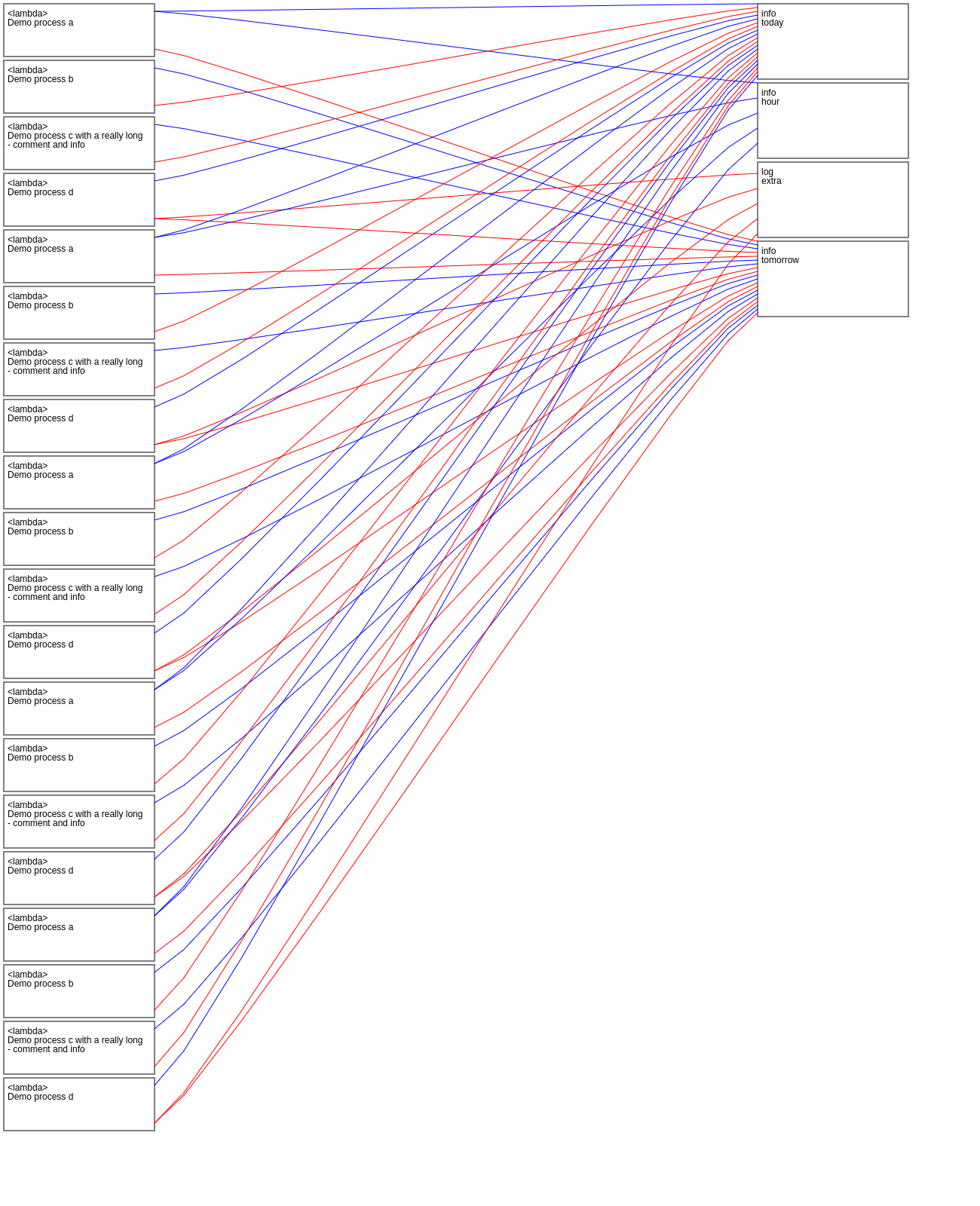bumpversion <major|minor|patch>python setup.py sdist bdist_wheel
Pure functions should not modify the state. Instead they should return a copy of the state.
Each function should take the input state and output a modified copy of that state without effecting the original state. The global state can be then set to equal this new state. This ensures that we can easily test each process and be explicit on what it is modifying.
Initial State ===> [Process 1] ====> New state
New State ===> [Process 2] ====> New state
New State ===> [Process 3] ====> New state
New State ===> [Process 4] ====> Output State
Through the use of functools.reduce we can create a process runner that will run a set of processes in turn on a state.
The process runner takes a list of processes and returns a function that takes the previous state and current process id.
Example runner:
def run_process(prev_state, process):
"""used in a reduce function to take previous state
and pass to next function"""
return process(prev_state)
def run_hour(processes):
"""Take a set of processes and return the process runner"""
def run_processes(initial_state: Model_State_Shape, hr: int) -> Model_State_Shape:
""" Takes the initial state at start of hour and the hour number"""
new_state = reduce(run_process, processes, initial_state)
return new_state
return run_processesTo use the runner:
def example_process(prev_state):
# do some stuff to the state
return new_state
initial_state = Model_State_Shape(1)
hr = 1
output_state = run_hour([
example_process,
])(initial_state, hr)...
from proflow.Objects import Process, I
processes = [
Process(
func=lambda x, y, z: x + y + z,
comment="Demo process a",
config_inputs=[
I('foo.bar', as_='x'),
],
state_inputs=[
I('info.today', as_='y'),
I('info.hour', as_='z')
],
state_outputs=[
I('_result', as_='info.tomorrow'),
]
),
Process(
func=lambda x, y: x + y,
comment="Demo process b",
config_inputs=[
I('foo.bar', as_='x'),
],
state_inputs=[
I('info.tomorrow', as_='y'),
],
state_outputs=[
I('_result', as_='info.today'),
]
),
Process(
func=lambda x, y: x + y,
comment="Demo process c with a really long comment and info",
config_inputs=[
I('foo.bar', as_='x'),
],
state_inputs=[
I('info.tomorrow', as_='y'),
],
state_outputs=[
I('_result', as_='info.today'),
]
),
Process(
func=lambda x, y: x + y,
comment="Demo process d",
config_inputs=[
I('foo.bar', as_='x'),
],
state_inputs=[
I('info.today', as_='y'),
],
state_outputs=[
I('_result', as_='info.tomorrow'),
I('_result', as_='log.extra'),
]
),
]Callable[[Model_State_Shape], Model_State_Shape]
The function to call
bool default = True
if False process is skipped
str default = ""
used for logging
List[I] default = []
Dot notation config inputs
List[I] default = []
List[I] default = []
List[tuple] default = []
List[I] default = []
List[I] default = []
List[any] default = []
additional args
In the experiments directory are some example of using the analysis tools
